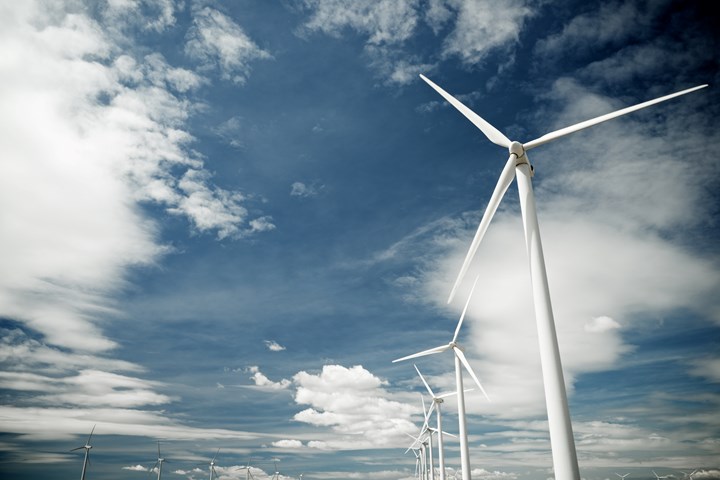TPI Composites announces new wind industry partners
In its latest earnings results, the company announces new or extended agreements with Vestas, GE, Enercon and Nordex alongside decreased Q3 sales due to continuing industry challenges.

TPI Composites Inc. (Scottsdale, Ariz., U.S.) has recently made new or extended agreements with Vestas (Aarhus, Denmark), GE Renewable Energy (Paris, France), Enercon (Aurich, Germany) and Nordex (Rostock, Germany) according to its Q3 2022 earnings results released Nov. 3 and recent press announcements.
Vestas. As part of its earning results, the company announced that it has entered into a long-term global partner framework agreement with Vestas. The agreement “aims to provide flexibility and capacity for Vestas while enabling better facility utilization for TPI,” comments Bill Siwek, CEO and president of TPI Composites.
GE. TPI also announced that it has signed an agreement with GE Renewable Energy to secure a 10-year lease extension of its manufacturing facility in Newton, Iowa. Under the agreement, GE and TPI plan to develop competitive blade manufacturing options to best serve GE’s commitments in the U.S. market with production expected to start in 2024. TPI says it has also agreed in principle with GE to extend lines in Mexico through 2025. The company notes that this agreement was made possible in part due to support from the Inflation Reduction Act of 2022. TPI manufactured wind blades for GE in Iowa from 2008 to 2021 and has manufactured wind blades for GE in Mexico since 2014.
Enercon. In addition, the company announced that it has extended its supply agreement with Enercon in Türkiye through 2025 in support of Enercon’s domestic projects in Türkiye and export projects. TPI has manufactured wind blades for Enercon since 2018.
Nordex. Also in Türkiye, TPI says it has extended its supply agreement with Nordex for four lines through 2023.
Third quarter earnings. For the third quarter, the company announces a 4.2% decrease in net sales compared to the same period in 2021. Reasons listed included increased transportation costs as well as a decrease in overall wind blades produced, caused by a temporary production stoppage at one of the company’s Mexico facilities, a brief labor disruption in Türkiye, and a reduction in manufacturing lines.
In its Q3 results announcement, TPI Composites also noted the commencement of several “cost-saving initiatives” such as optimizing its global manufacturing footprint, reducing staff in impacted geographic areas, and ceasing production at its Yangzhou, China manufacturing facility in December 2022.
Siwek comments, “We remain confident that the mid to long-term prospects for wind energy outweigh any near-term challenges today and we are encouraged by the ongoing broad-based support for the Inflation Reduction Act in the United States and REPowerEU in Europe. Right now, our focus is to best position TPI for the long-term while dealing with the near-term challenges.”
Related Content
-
ZEBRA project demonstrates closed-loop wind recycling system
Consortium partners have proven the complete recycling of thermoplastic wind turbines via two manufactured wind blades, featuring reduced operating cost, CO2 emissions.
-
Composites end markets: Energy (2024)
Composites are used widely in oil/gas, wind and other renewable energy applications. Despite market challenges, growth potential and innovation for composites continue.
-
Ceramic matrix composites: Faster, cheaper, higher temperature
New players proliferate, increasing CMC materials and manufacturing capacity, novel processes and automation to meet demand for higher part volumes and performance.

.jpg;width=70;height=70;mode=crop)














